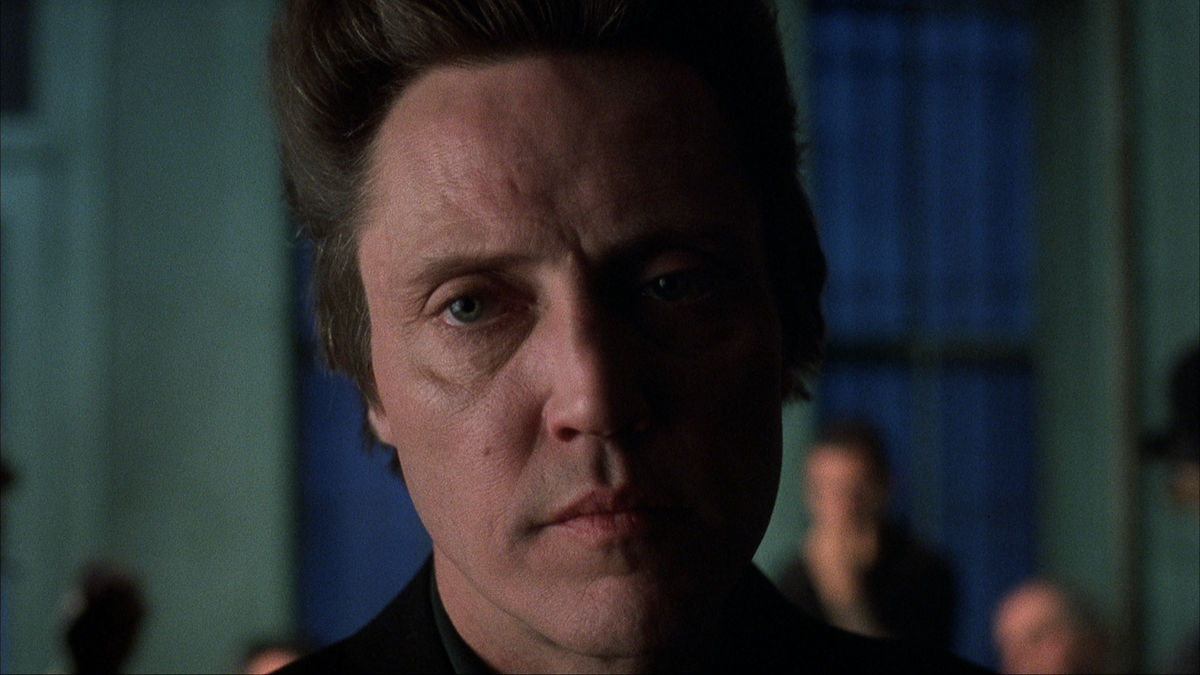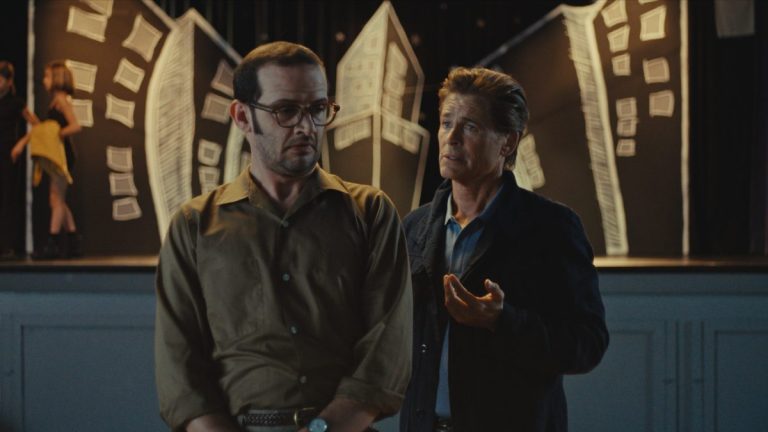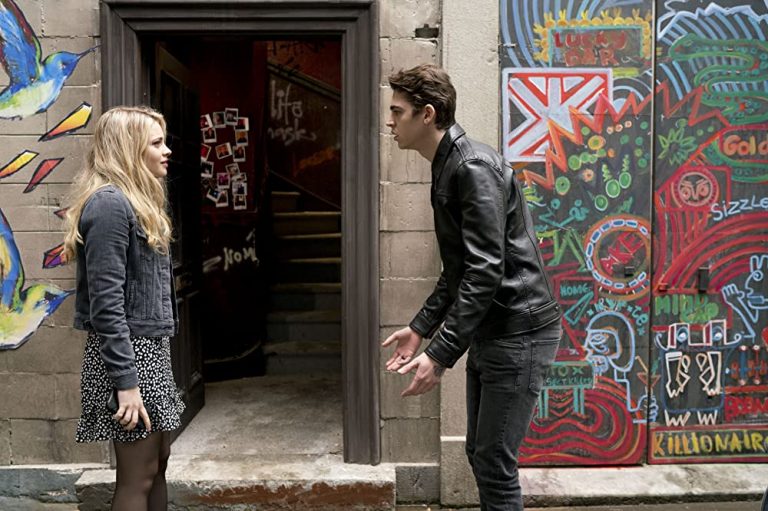Abel Ferrara’s King of New York (1990) doesn’t open with a bang but with a quiet, uneasy rumble — the kind of silence that feels stolen. The first thing we hear is the low grind of prison gates. Frank White (Christopher Walken), dressed like a shadow, steps out not like a man coming home, but like someone who slipped out of a grave nobody knew was there. He doesn’t blink. He barely seems to breathe.
In this world, Frank doesn’t make an entrance — he rises. He climbs, literally and otherwise, through the film like a ghost convinced the living still owe him something. Walken’s Frank has seen things you wouldn’t want to imagine. His performance here is the stuff legends are made of.
Much has been written about “King of New York” as a gangster film, as an urban opera of violence and power set in New York City. But what sets it apart and what makes it worthy of the same breath as Melville’s “Le Samouraï” or Scorsese’s “Mean Streets” is its refusal to moralize or mythologize its subject. Like some of the best films, we get an inside look at another world without any judgment.
Instead, Ferrara drags the genre through a psychic underworld of Catholic guilt, capitalist rot, and spiritual collapse – themes he revisits time and again throughout his other work, such as “Bad Lieutenant.” But “King of New York” is my favorite Ferrara movie as I feel it encapsulates all of his obsessions in the most self-realized way. It’s a film where the guns are loud but the silences scream louder, where the city is both crucible and cathedral to the viewer.
Frank White is not Tony Montana. He is not Michael Corleone. Frank is a man who has seen the other side and has come back not with wisdom, but with obsession. He wants to clean up New York by ruling it. He wants to fix the system with the very tools that broke it. This is the paradox, that this impossible reconciliation of power and virtue is what drives him. He builds hospitals with drug money. He assassinates rivals while quoting civic duty.
Moreover, Frank sees himself not as a king, but as a redeemer with a ledger. He performs the acts that he has taken upon himself that others don’t want to do. And Christopher Walken plays the character really well, skewing the moral ambiguities with his facial expressions.

The film understands that power is always haunted. Ferrara is not interested in the mechanics of crime, but in its theology. Every frame pulses with moral ambiguity. The cinematography by Bojan Bazelli is drenched in chiaroscuro half-lit faces, blood flickering in strobe, and figures swallowed by shadow. It’s a film of ghosts and silhouettes, of men chasing control through corridors already haunted by their own consequences. But perhaps the most revealing moment in “King of New York” and one of its most enigmatic isn’t a shootout or monologue. It’s the “What’s In The Cup?” scene.
The moment arrives without warning. The cup becomes a kind of vessel, not just for its unknown contents, but for everything Frank is refusing to articulate. What’s in the cup? Maybe it’s just soda. Maybe it’s nothing, or maybe it really is root beer. But whatever it is, it clings to something sacred in Frank — his distance, his appetite, the slow, deliberate rot that pulls him deeper into the underworld. In that moment, the cup is the comedic relief. The scene itself has become a meme. It’s quotable and otherwise funny and stands out in this movie in tone.
It tells us more about Frank’s inner world than any of his pronouncements of justice or loyalty. That scene lingers precisely because it resists explanation. It’s a surreal beat, almost Lynchian in its rhythm. Before the internet, a lot of indie films used to have at least one or two very memorable, meme-worthy type scenes that would stick with you afterwards. And like much of “King of New York,” it plays on the edge of dream logic. The world of the film is grounded in brutal reality, but the tone drifts into something mythic.
As Frank picks off his enemies and watches his allies fall, we begin to see the architecture of his self-mythology crumble. The man who thought he could rule New York like a philosopher king ends up alone, bleeding out in the backseat of a yellow cab, chased underground like the very criminals he once condemned. There’s no glory in it. Just silence, flashing lights, and the city continuing without him.
This is Ferrara’s ultimate achievement. “King of New York” is not a cautionary tale. It is not a morality play. It is something far more unsettling, a study of a man who believes the city owes him transcendence, and who discovers that all the money, violence, and power in the world cannot buy absolution. Frank White is not punished for being evil; he is punished for believing that he could be good. In the decades since its release, “King of New York” has only grown more vital.





![My Darling Clementine [1946]: An Iconic Western Lore](https://79468c92.delivery.rocketcdn.me/wp-content/uploads/2016/10/Clementine-2-768x555.jpg)

